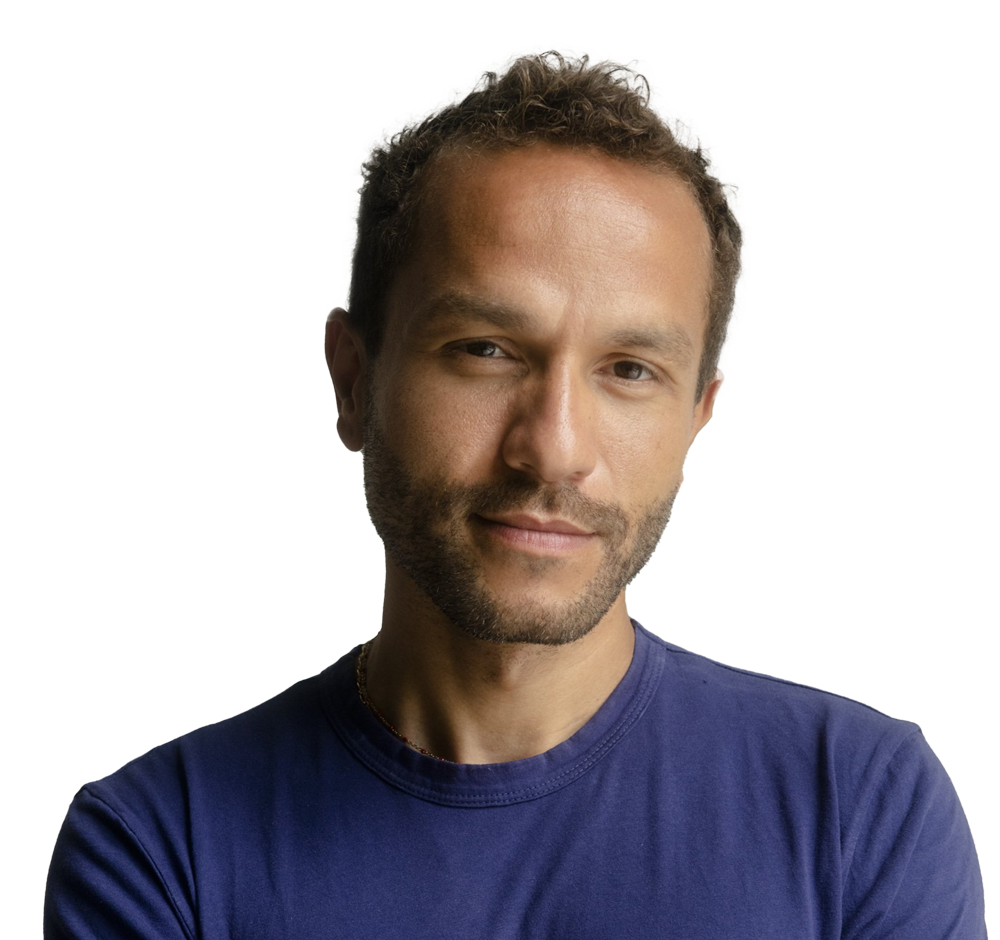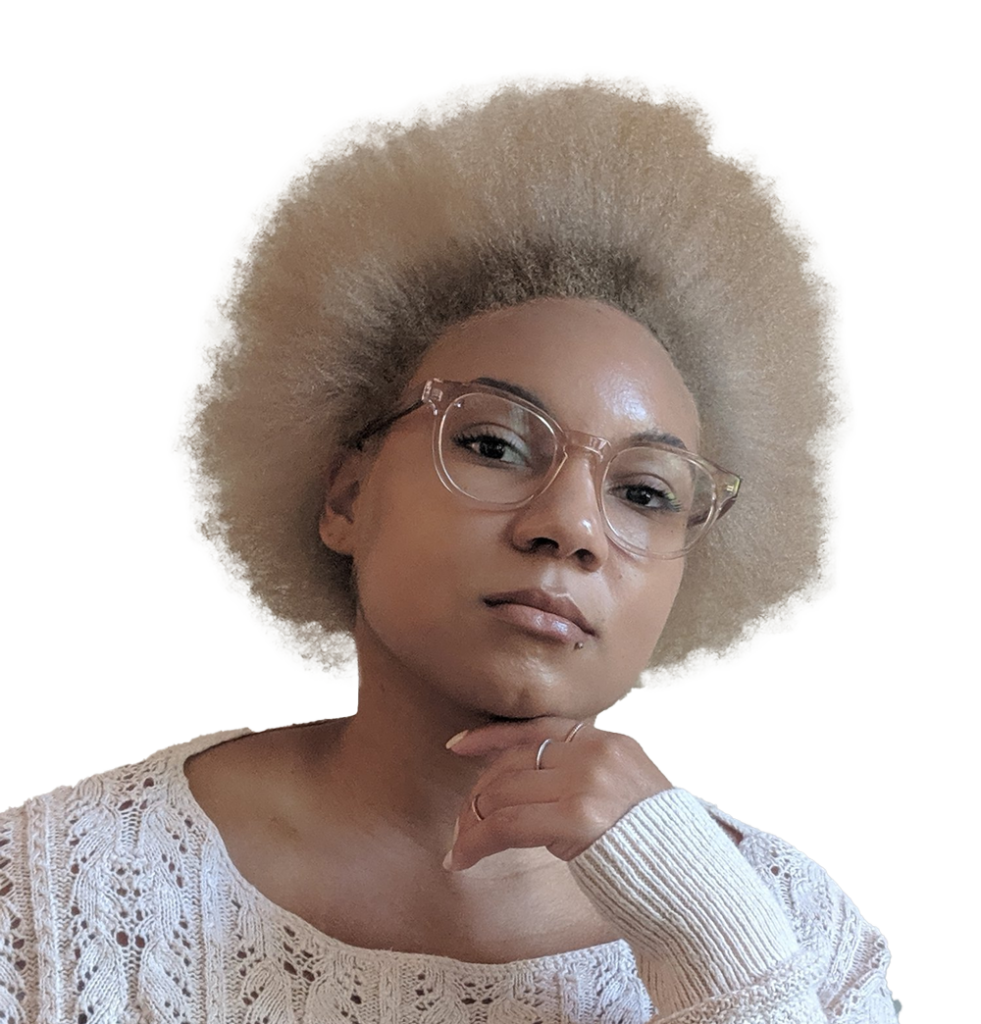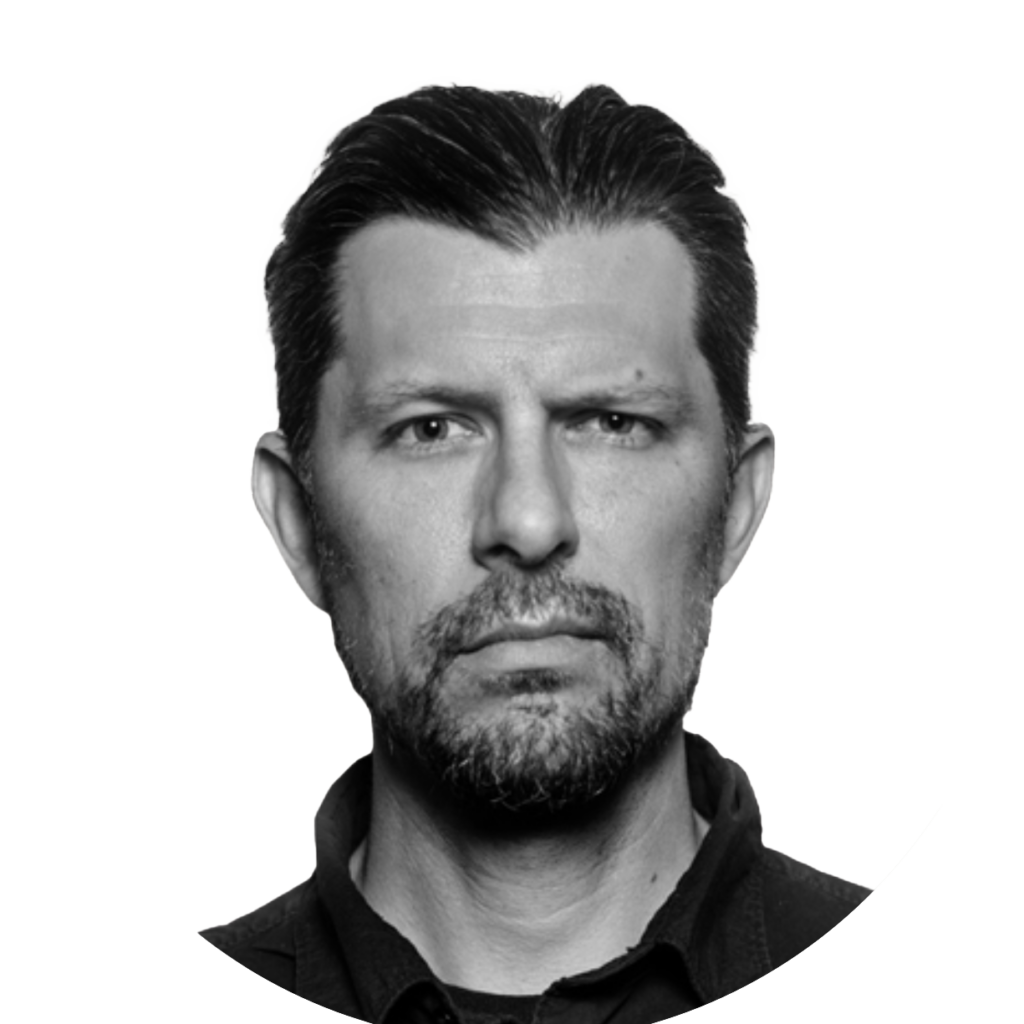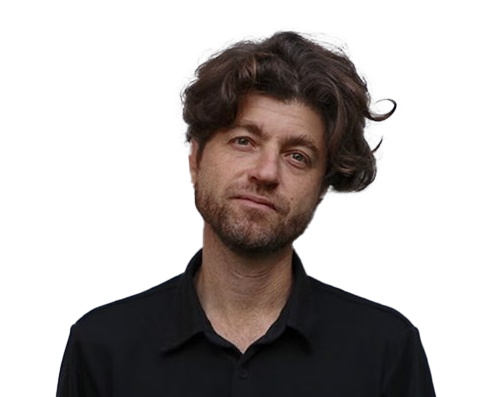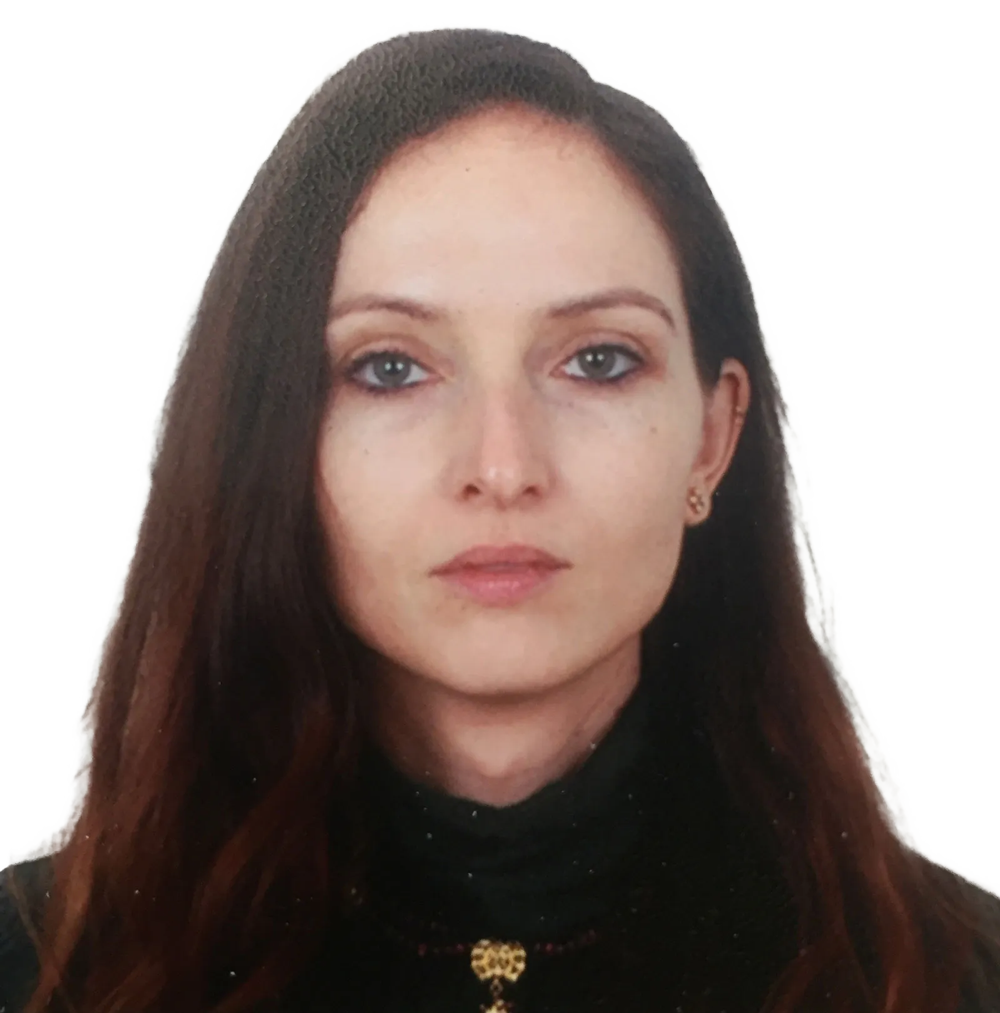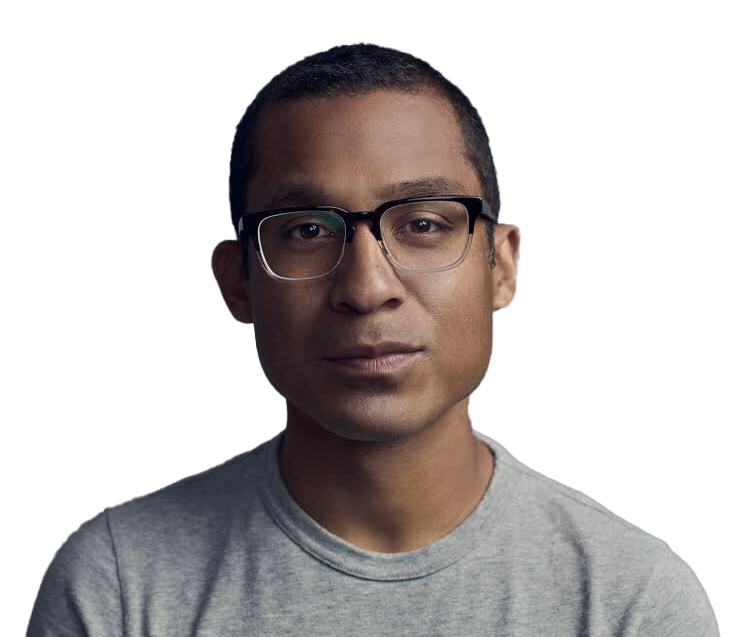This interview has been condensed and edited for clarity, and organized around key phrases in the conversation.
Becoming a caregiver
When my mom, Rebecca Danigelis, was abruptly laid off with only $600 in her bank account, she was devastated. You could hear it in her voice. There’s a voicemail of hers that I share in the film that’s very matter-of-fact but there’s also fear, anger, and uncertainty—so many emotions in there. In the days after her firing, it became clear to her that she had lost more than her job, she had lost just about everything—her value, her purpose, and her work family.
I am inherently an emotional person, but in a crisis I become practical. I knew that [with her] at 75 and suddenly jobless, and just $600 in her bank account, I needed to be my mom’s rock. I needed to get everything in order—her legal documents and testimonials.
Money
While my mom does have a small Social Security check, it’s not enough to fully support her, and so, it does weigh on me; I feel it. Every dollar I make, I make. It’s a cobbling up of different streams of money to make all this work. But, I have no regrets. I know, for me, at this moment in my life, my job is to make sure that my mom, who is 84 years old, is safe and comfortable every day she is on Earth. If that means that I have to pay for her apartment—which I do—then I will; it serves my mission. That’s how I think about it.
I can only control how I show up for my mom while she’s here. I don’t want to have any regrets in that sense. Caring for my mom is my legacy. That’s what drives my decisions. I’m not pulled by wanting all of these other things. I’ve seen and felt the good that my feature documentary, Duty Free, has had on others—how it touches other people, and changes hearts and minds. I mean, what else is there? I just feel so present in the way that I live my life.
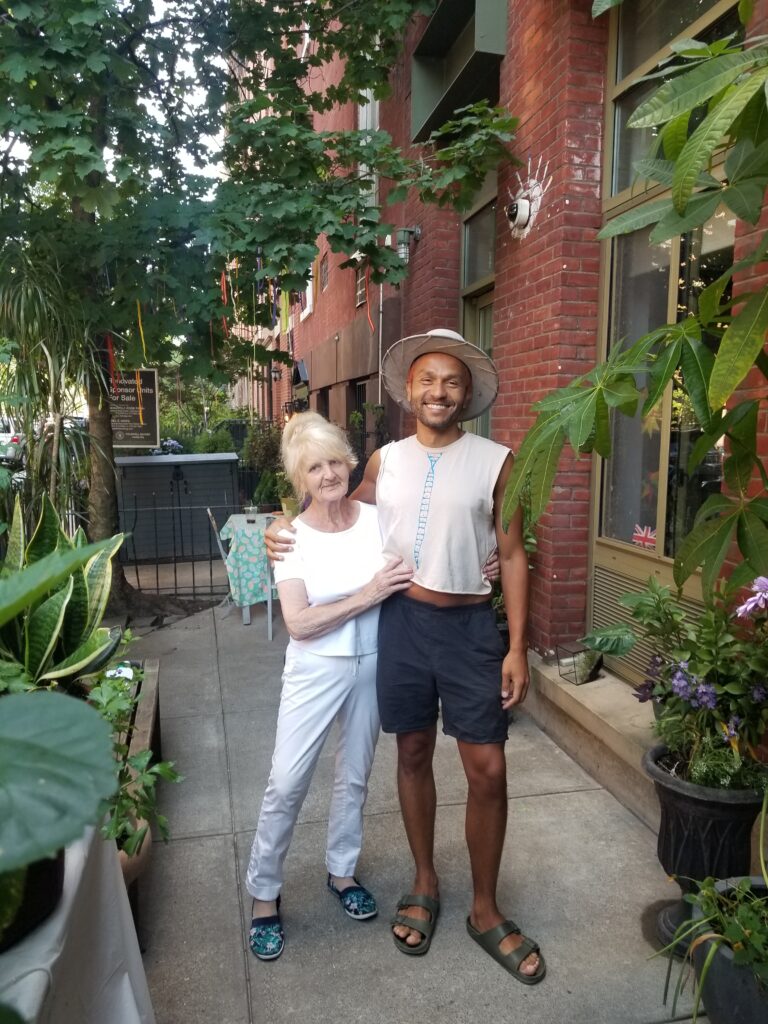
Professional validation
I think the process of making Duty Free actually diminished my need for validation. I was in my late 20s and early 30s throughout the making of the film, and prior to that, I had focused much of my career on TV journalism, climbing the ranks of cable news. In that world, you seek validation from TV ratings, from your peers, from the scoops you get. When my mom lost her job, I guess I realized what was really, really important to me, which was making sure the person who mattered most to me in this world felt safe. Everything else fell away.
Being a first-time documentary filmmaker, you get lots and lots of feedback, and at the start of the process, I held onto what stakeholders or gatekeepers thought about the film. Eventually, I realized that their feedback wasn’t going to shape the film that I wanted to make. I realized only I knew the film I wanted to make because only I knew my mom. Over the five to six years it took to make the film, it was a test to not seek outside validation and remain really focused on what I was being called to make.
A higher purpose
One day I was sitting around wondering how I could cheer my mom up. I’d never seen her this low. Out of nowhere, I came up with this idea of taking my mom on a bucket list adventure, and filming our journey together. It felt like the idea was placed in my mind. I thought about what this experience could mean to her—and for us—so I decided to follow it.
There were so many times when I didn’t want to pick up the camera. Sometimes she was so emotional and I just wanted to “be” with her instead of film our interactions. But I kept being called back to record her journey through this process. I’m so glad, too, because so many of the most important moments of the film are the ones that I captured when I was, unbeknownst to the viewer, dreading picking up my camera to film. Sitting next to my mom, I became a proxy for the struggle she was navigating.
For young folks who are hungry and driven, there are a lot of reasons to say, “not right now” to having your parent move in with you. But, you don’t really understand the human experience of someone who is 75 years old—how much they may need a friend, and in my mom’s case, how much help she needed applying to jobs or logging into LinkedIn for the first time. That made me wonder, “Who else is like my mom?” And that question started the reporting process for the film.
“To disagree well, you must first understand well.”
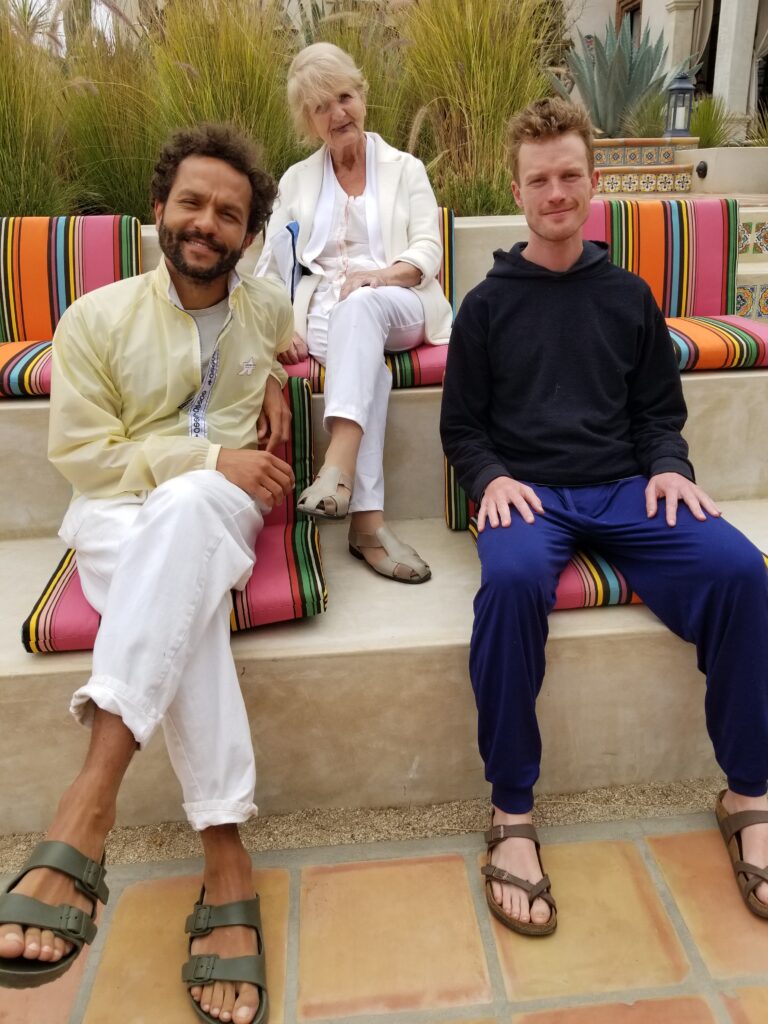
My mom is British and British people generally don’t talk about their feelings. That’s how I was raised. We didn’t communicate our frustrations. My mom’s mantra is: You fall down, you get up, and you keep going. In many ways, that’s been really helpful in my own life. It is the reason for my resilience.
My partner, Sam, has taught us the importance of communication. He has no problem expressing exactly how he feels at the moment. He’s confrontational in a non-scary way. My mom tended to retreat to her room and close the door if she was upset or didn’t want to be bothered. Sam would be the one to check in about an issue and within 15 minutes, it was over and we could move on. I learned that the stories that we tell ourselves about what’s going on are often so much more damaging than they actually are. So we got better at open lines of communication after three years of living together.
Multigenerational living was the biggest challenge for Sam because he was the man in the middle. Patience and nonjudgmental curiosity about the other person are the keys. My mom had 75 years of life that informed how she moved through the world. Sam was really interested in and able to learn about who Rebecca is.
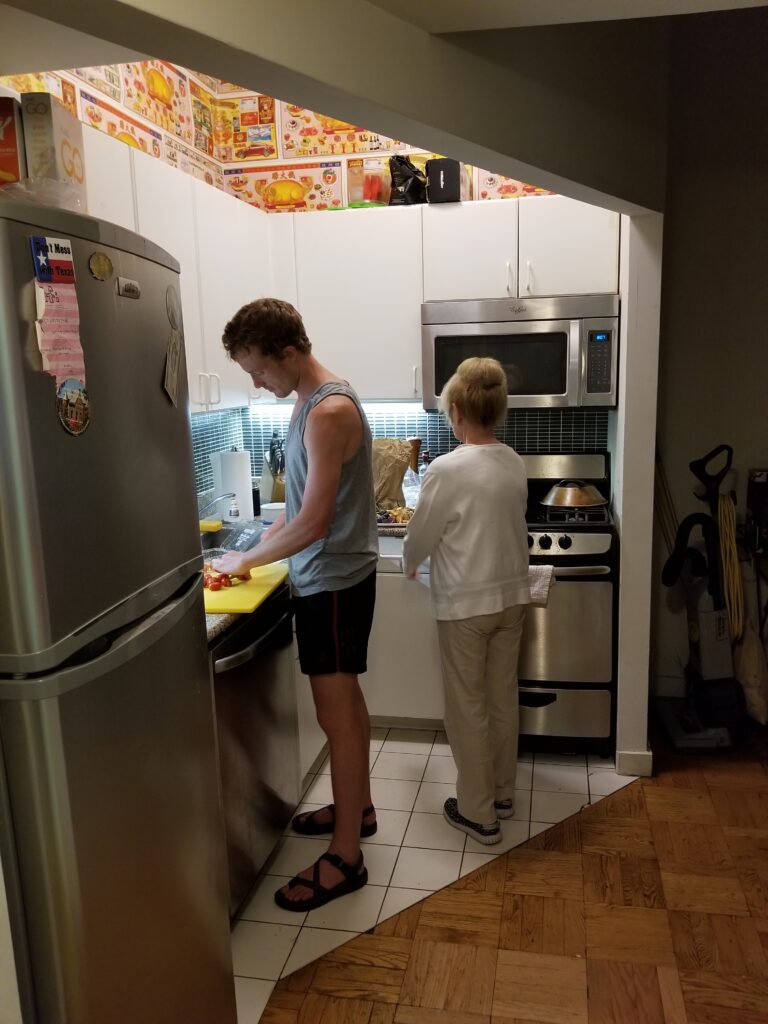
As for the little things we each did that drove each other nuts, it varied. It drove Sam crazy that my mom didn’t know how to load the dishwasher! The way she would put the dishes away never made any sense! But we’d never had a dishwasher growing up in our small New York City apartment so she wasn’t familiar with it.
Alternatively, she would get so annoyed that I never made my bed, so she started making it. I mean, she was a hotel housekeeper so she knew how to make a bed really well—I wasn’t going to stop her! We were running an Airbnb downstairs, and my mom started managing it, which was amazing—I mean this is what she did for her career. But then she started buying new toothbrushes, toothpaste, and Dove soap for every single guest, even when they come for just one night. It really started to add up. We’re like, “Mom! This isn’t the Ritz! We know you care about this stuff, but we can’t afford to do this for everyone!”
A mother’s cancer diagnosis
Finding out my mom has cancer was really emotional at the start. There is a lot of learning to do. My mom said it so well in one of her recent Instagram posts—cancer is the thing that people talk about in hushed tones, but you don’t know what it’s really like until you experience it. It was initially way too much for me to hold—a lot of tears and emotions. But I was on every call and at every doctor’s appointment, and I came prepared with 100 questions. I wanted to be as informed as possible. But then I would go home and break down to my partner, Sam. I told him, “Everything is moving so fast.” It became very real to me that I only have so much time left with my mom.
My mom was initially very scared. She just didn’t know how you live with cancer. What we learned is that you can live with this. Lots of people do. All you can do is what’s in your control. We’ve just tried to spend our time together now being present with one another.
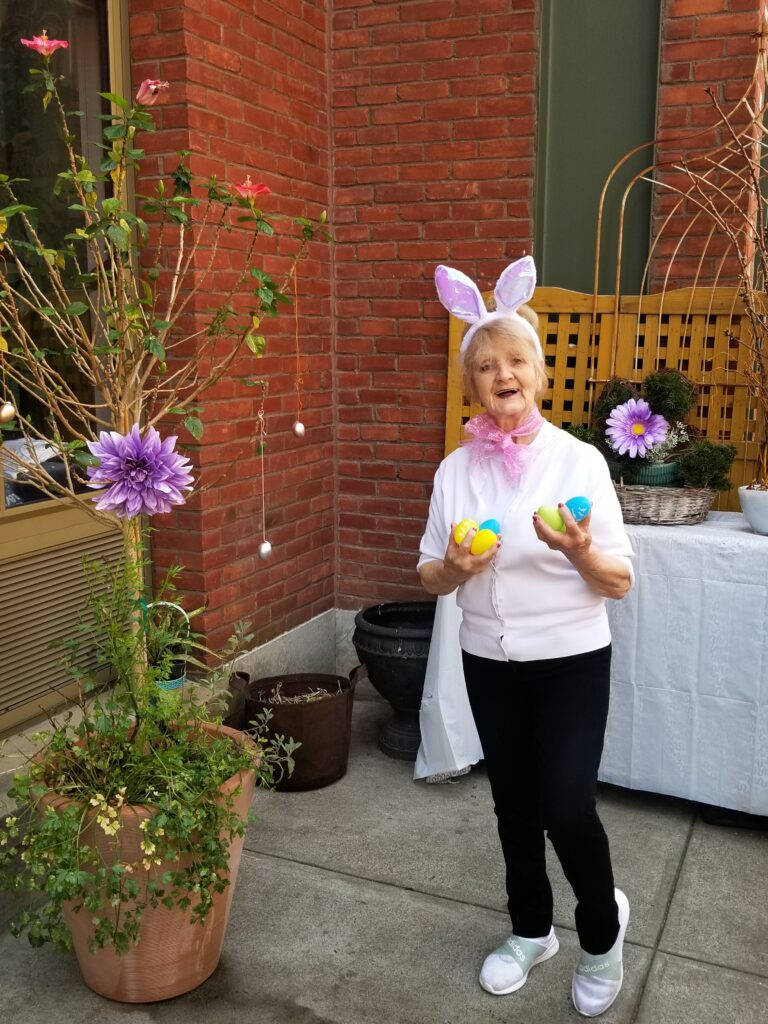
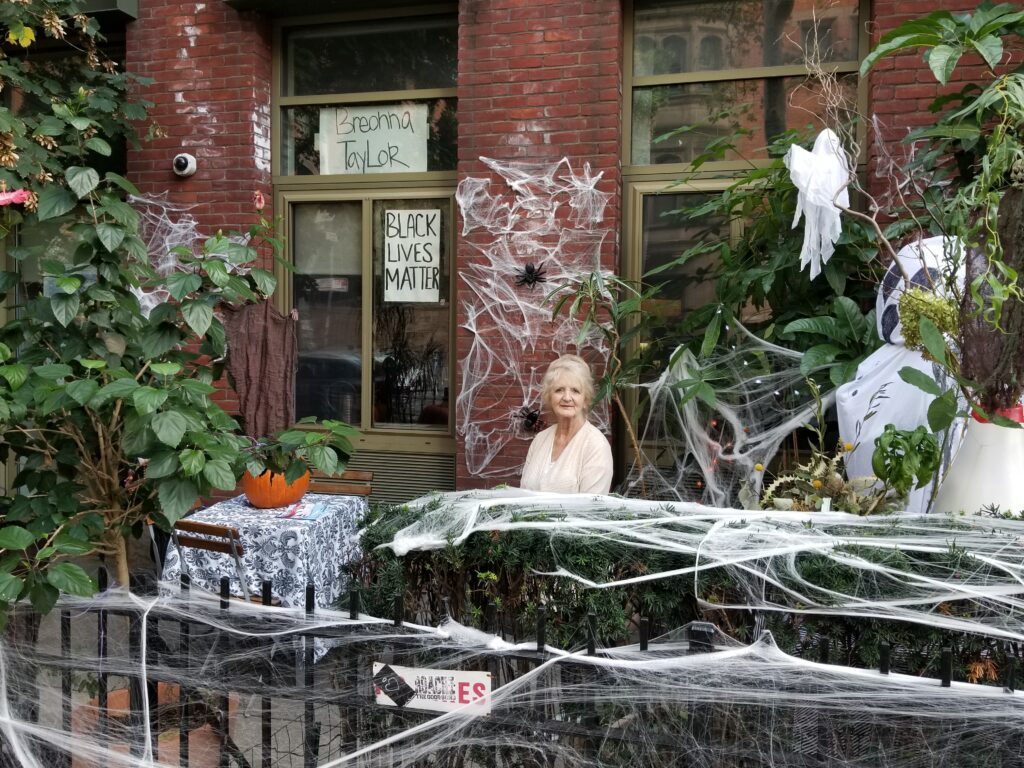
Simple joys
My mom is a bird when it comes to eating. She basically just eats granola and yogurt. And yet, my partner is a dietician and former farmer, so food is his love language. He would always encourage her to eat healthy. As a stepping stone from that, we would cook and eat dinner together at least once a week. We would play a game called “Highs and Lows” where you name two highs of your week and two lows of your week, and then share a personal challenge for the week ahead. And then we’d check in with each other—did you meet or defeat the challenge? It was such a wholesome, sweet thing that we did together. And we were really invested in each other’s challenges. I look back on those conversations as so beautiful. Truly a family event with my atypical family!
My mom is, in general, such a crafty person, so she loved to decorate our apartment’s terrace to celebrate a holiday. For Easter, she’d go to Michael’s craft store to buy fake Easter eggs to hang. For Pride month, she’d purchase fabric to make handmade Pride flags, or for St Patrick’s Day, she’d dress up as a leprechaun. In other words, she brought joy to our doorstep. Now that my partner, Sam, and I live separate from my mom, we don’t take the time to create those same moments in our own home. So, we’ve lost some of the joy!
Solitude
My mom, partner, and I lived together for 3 years from 2020 to 2023. It’s now been about 1.5 years since Sam and I moved into our own place, and I’ve had a chance to reflect on that journey together. It was the most beautiful three years of my life because I was surrounded by the two people who love me the most.
On the other hand, it was challenging because there was no alone time since we shared a small, New York City apartment. I mean, I could see my mom’s bedroom from my own—there really was no space. There were times when that got in the way. But I’m lucky, because my mom is my best friend. I have this incredible emotional empathy for her that felt like my heart was living outside of my chest. I was so focused on, “Is she OK? Is she happy?”
But there was also the dynamic of wanting solo time with my partner, Sam. As a growing adult, who needs my own separate experiences from my mom, it could be difficult to navigate. When I lived with my mom, I had to fit within the boundaries of this person she thought of me as. I don’t think any of us want to divert from the person who our parents think we are. There was a level of who she thought I was versus who I really am. It’s like I was 90 percent of myself when I was with her.
For my new project, a podcast called Raising Adults, I talk to people across the country who are living multi-generationally. I’m curious about a few central questions: How do you care for a house of adults while grappling to become one yourself? How can you become the person you were meant to become under the thumb of your parent?
I’ve found that some people have a very hard time negotiating the child they once were versus the adult they are now when they’re living with their elderly parents. The adult child can feel trapped, especially if their new role is as a caregiver, but the interactions with their parents feel like déjà vu from when they were a little kid. Most of the people I talk to still wouldn’t change their situation because of the time they’re getting to spend with their parents. This is a part of the life cycle that Americans have been coaxed away from—the idea of the village, that we should be together when we’re born and together when we die.
July 9, 2025
Photos provided courtesy of the Fellow.
